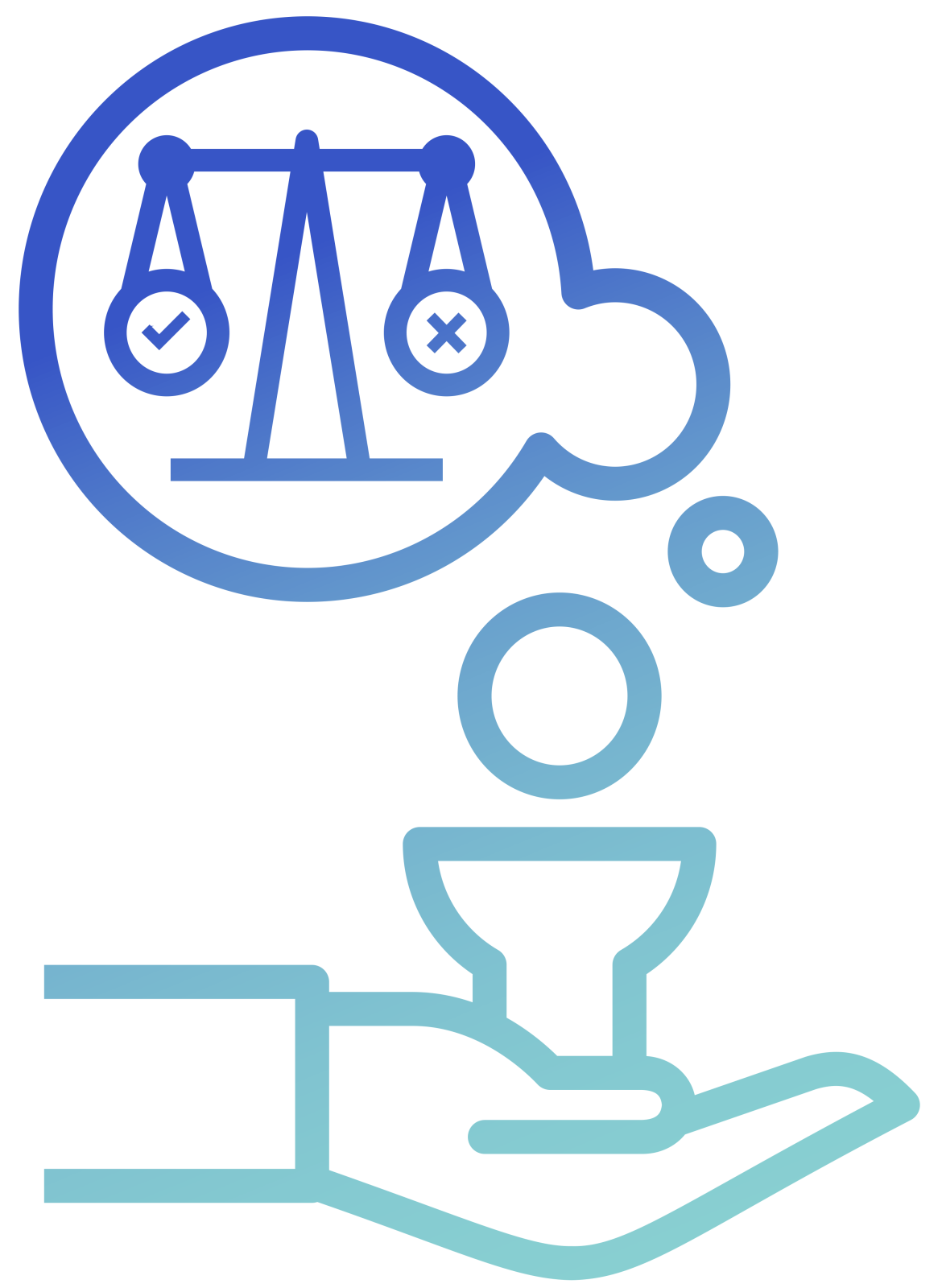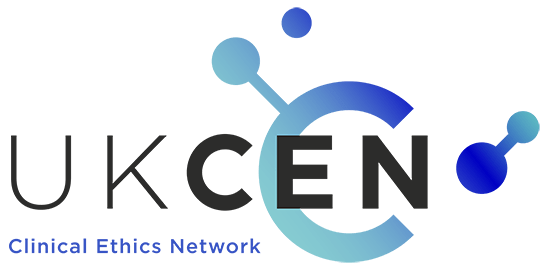Core Competencies
“The UK Clinical Ethics Network has consulted extensively with its members to set out … the core competencies necessary for the provision of clinical ethics support.”
Larcher et al, Core Competencies for Clinical Ethics Committees. Clinical Medicine 2010; 10(1): 30
Following consultation with members, in 2007 the UKCEN published a consensus statement on the core competencies for Clinical Ethics Committees.
Key information is below and you can access the full documents in Downloads or by following the links on the right.
Skills
Ethical assessment skills
- Ability to recognise and discuss moral conflicts within the clinical situation
- Ability to understand the moral perspective of all parties
- Ability to explain the ethical dimension of a case to those involved and to others*
- Ability to formulate and justify morally acceptable solutions*
- Ability to review established practices that have generated moral concerns or conflicts, to determine whether change is necessary*

Operational skills
These are required in the process of resolving conflict, reducing uncertainty, and building consensus, and include:
- Ability to facilitate meetings, record cases etc.
- Skills in facilitation, of both case consultation discussions and CEC meetings*
- Mediation skills required to negotiate conflict resolution in situations of emotional distress*
Interpersonal skills
- Active listening
- Communication skills*
- Advocacy skills to enable articulation of the views of those who find it difficult to express themselves*
* “Advanced” skill expected of Chair, Vice-Chair or senior committee member involved in acute or retrospective case consultations.
Knowledge
- Introduction to ethical theory and moral reasoning (‘advanced’ knowledge of ethical theory and moral reasoning required by at least one committee member and the lead member of any case consultation group)
- Awareness of the position of the CEC/forum in the hospital framework and links to clinical governance
- Relevant knowledge of clinical terms and disease processes*
- Beliefs and perspectives of patients and staff population and community staff*
- Relevant professional codes of ethics, e.g., General Medical Council, Nursing and Midwifery Council*
- Relevant health care law
- Local and national government policy, e.g., resource allocation*
* Advanced knowledge in these areas should be provided by recruitment of appropriate individuals to the committee. These might include representative(s) from the multi-faith centre, health care law, and from a primary care trust. Adequate knowledge of clinical terms and disease processes needs to be provided by appropriate clinical input with explanations for lay members on the committee. Advanced clinical knowledge in specific cases can be acquired by co-opting a relevant expert on to the committee.

Personal Characteristics

The acquisition and nurturing of certain personal characteristics are aspirations that individuals should pursue as a long-term project in an analogous way to continuing professional development. Personal characteristics enable core skills and knowledge to be acquired, applied and developed appropriately. It implies a commitment to values that include:
- Tolerance, patience and compassion. Enables disparate views to be held in difficult situations.
- Honesty, fair mindedness, self-knowledge and reflection. Enables recognition of personal limitations and development of relationships based on of trust and respect.
- Courage. Enables voices of weak and vulnerable to be heard and dissenting views to be put to those in authority. It involves the skill of advocacy.
- Prudence, humility. Enables individuals not to go beyond their level of competency and/or to acknowledge conflicts between personal moral views and role in consultation.
- Integrity. Enables pursuit of ethically relevant options when it might be convenient to do otherwise. Moral integrity should underpin all ethics consultation.
Assessing, Acquiring and Maintaining the Competencies
A CEC should seek to ensure that it has mechanisms in place for the assessment, maintenance and acquisition of the core competencies:
- Composition. The CEC should seek to ensure that that it is appropriately composed, i.e. that the individual members and the CEC as a whole can meet the core competencies. You can find advice on selecting members in the section on membership.
- Training. The CEC and its members should ensure that its members are appropriately trained. Members should ideally already have the suggested interpersonal skills. It is likely that many (perhaps all) members of a CEC will already have acquired the suggested operational and communication skills (for example, through their professional training and working).
Training should nevertheless be sought where this is indicated. In particular, members should receive training or teaching in the distinct ethical skills and knowledge necessary for clinical ethics work. This may include reading around the field, attending study days and short courses, and enrolling on degree programmes (or elements thereof): see courses.
The CEC and its members should maintain a record of relevant educational activities undertaken. Regular attendance and evidence of engagement with educational activities should be a requirement of membership and monitored on an annual basis.
New members should have attended at least one training course on ethics consultation within two years of appointment to the committee and once every three years thereafter.
You can find further information about key topics in clinical ethics, as well as about courses and events, in Clinical Ethics Resources.
